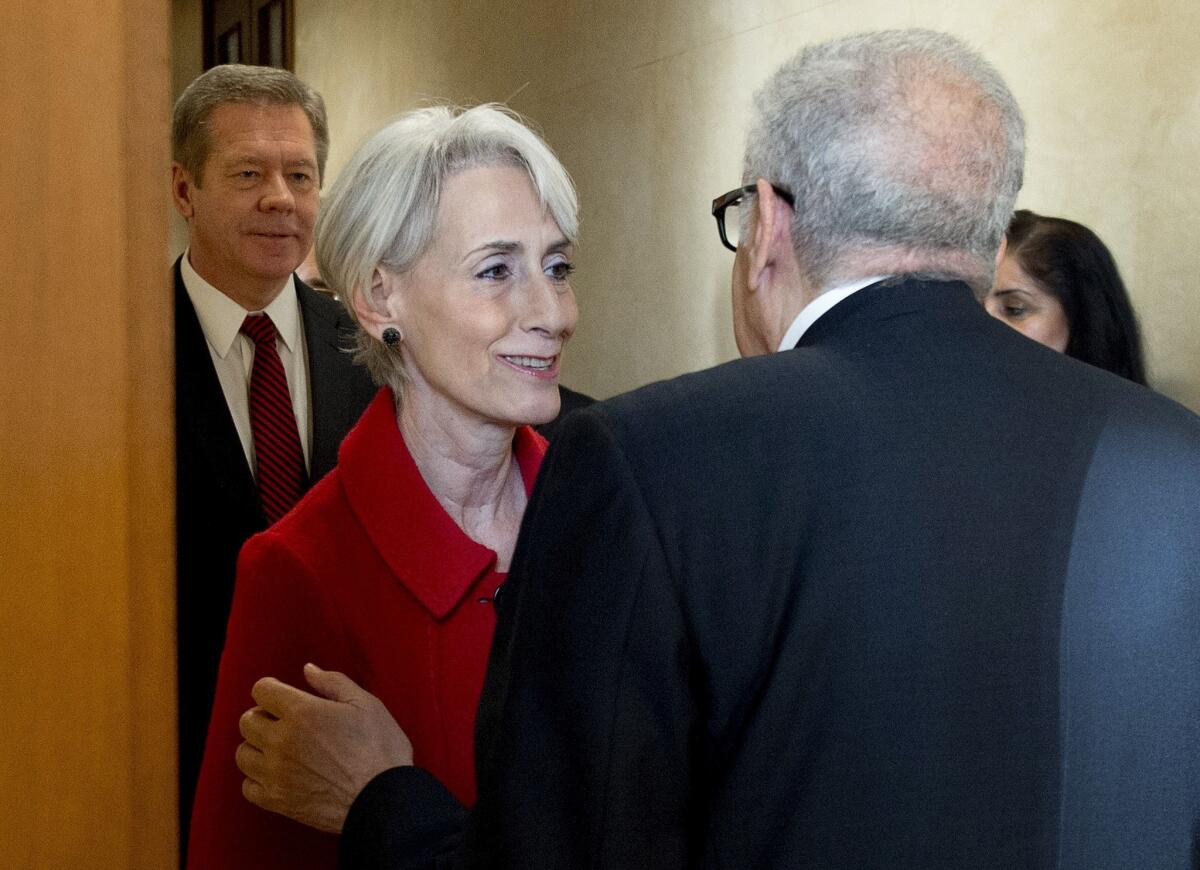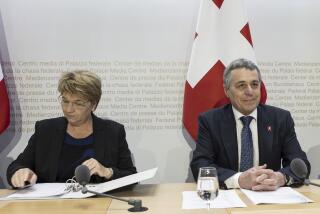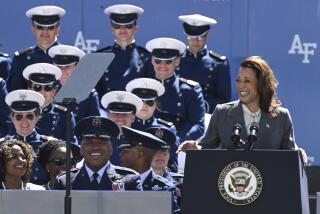Syria peace talks to begin Jan. 22, U.N. says

BEIRUT -- Long-delayed peace talks designed to end the bloody conflict in Syria will be held on Jan. 22 in Geneva, United Nations Secretary-General Ban Ki-moon announced Monday.
The so-called Geneva 2 negotiations -- sponsored by the United States and Russia -- would mark the first time that Syrian government and opposition representatives will come together in an effort to negotiate an end to the 32-month-old civil war.
“The conflict in Syria has raged for too long,” a U.N. spokesman said in a statement. “It would be unforgivable not to seize this opportunity to bring an end to the suffering and destruction it has caused.”
The talks were originally scheduled for last May, but deep differences among Syria’s fractious opposition forces have proved a barrier to getting both sides to the negotiating table. The U.N. announcement on Monday appears to be an effort to force the issue and set a firm date for what could be a forum laying the groundwork for a new political order in Syria.
The timing also suggests that diplomats are hopeful of seizing momentum from the just-concluded talks in Geneva concerning Iran’s disputed nuclear program. On Sunday, representatives of six world powers and Iran reached a preliminary accord that would put constraints on Tehran’s nuclear program in exchange for limited relief from international economic sanctions.
The aim of the Syria talks is to set up a transitional government in Damascus based on the “mutual consent” of the opposing parties. The transitional administration would have full executive powers, including control of military and security units, according to a blueprint hammered out last year by world powers.
The transitional administration is meant to pave the way for free elections and a democratic government in Syria, which has been ruled for more than four decades by the Assad family and its allies.
The government of President Bashar Assad, a close ally of Russia, has said it will send representatives to the Geneva 2 talks, though Assad himself has repeatedly declared that he will not talk to “terrorists,” the government’s term for the armed opposition. However, Russian officials have assured the U.N. that Assad’s government is ready to attend. Similar guarantees have not been forthcoming from the deeply divided opposition.
The major, U.S.-backed political opposition group, the Syrian National Coalition, has limited presence on the ground in Syria and has been rejected as illegitimate by some rebel groups fighting inside the country. The coalition has put down various conditions for its presence at peace talks, including seeking a guarantee that the process will lead to Assad’s departure from power -- a demand rejected by the Syrian government.
Various Islamic rebel alliances have also sprung up inside Syria recent months, along with Kurdish militants fighting for a degree of autonomy in northern Syria. Also, several factions affiliated with Al Qaeda and seeking establishment of an Islamic state in Syria have become powerful blocs in the rebel ranks. Officials have said that the Al Qaeda groups will not be invited to Geneva 2.
There are also numerous opposition groups and political parties operating within government-controlled areas of Syria. Who will represent them at the Geneva conference also remains unclear.
Another question is whether Iran, a close ally of Assad, will be invited as part of a number of outside nations also participating in the planned conference.
The Syrian conflict, which began in March 2011, has resulted in more than 100,000 deaths and driven millions from their homes, causing political and social tension throughout the Middle East. The Syrian war, which features various foreign powers bankrolling and arming one side or the other, is widely regarded as the major security and humanitarian challenge in the region.
ALSO:
Iran’s leaders call nuclear deal a success
Afghan council defies Karzai on U.S. security deal
Honduras: Voters face historic choice against troubled backdrop
More to Read
Sign up for Essential California
The most important California stories and recommendations in your inbox every morning.
You may occasionally receive promotional content from the Los Angeles Times.










